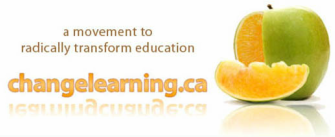|
The latest research and theories from evolutionary psychology, neurobiology and cognitive science demonstrate the various ways that humans have evolved over time to be extremely effective learners. John Abbott discusses what current research from various fields can tell us about how the adolescent brain works and how educators can work with adolescent learners to maximize their potential.
0 Comments
Research shows ‘Signs of Suicide’ prevention program helps reduce the number of attempts by high school students.
Read more Tell Them From Me is an assessment system that measures a wide variety of indicators of student engagement and wellness, and classroom and school climate that are known to affect learning outcomes. The anonymous survey covers areas including: perceptions of testing, involvement in sports teams and clubs, attendance, hours spent watching TV, a sense of belonging, post-graduation goals, bullying, self esteem, student anxiety and depression.
Read more This Policy Proposal, from the 21st Century Learning Initiative in the UK, is written to assist those in positions of influence to initiate powerful changes to current educational arrangements. The circumstantial evidence for such a transformation of learning is drawn from the best in research and practice from around the world. The paper shows that better informed, and more effective, models of learning could be organised through a redistribution of expenditures and responsibilities, at a total cost no greater than current levels of expenditure.
If young people are to be equipped effectively to meet the challenges of the 21st century it is surely prudent to seek out the very best understandings from current scientific research into the nature of how humans learn before considering further reform of the current system.
This article by John Abbott and Terence Ryan appeared in the Spring, 1999 issue of Education Canada. Rather than thinking of the brain as a computer, cognitive scientists now utilize a far more flexible, biological analogy, where the brain is seen as a unique, ever-changing organism that grows and reshapes itself in response to use. In this article, John Abbott and Terence Ryan discuss how emerging brain research that supports constructivist learning collides head-on with many of our institutional arrangements for learning.
The article first appeared in the November 1999 issue of Educational Leadership. “Every kid is different. Why force each mind to fit the same timetable?” asks this article written by a British Columbia teacher. If individuals learn in a variety of styles and on different schedules, who benefits from the formal rigidity of current school timetable? And if we know that learning is not confined to the classroom, couldn’t we ‘do’ school differently? Nick Smith, a veteran teacher, discusses the current ‘factory education model’ in contrast to mastery learning, self-directed studies, a continuous progress model, and other innovative ideas being put into practice at alternative B.C. high schools.
Link: http://thetyee.ca/Views/2008/09/19/SchoolClock/ We have all witnessed the apparent ‘craziness’ of adolescence. Typically, the rebelliousness, risk-taking and contrary behaviour has been chalked up to raging hormones.
Read more |
Categories
All
Archives
August 2015
|

 RSS Feed
RSS Feed
